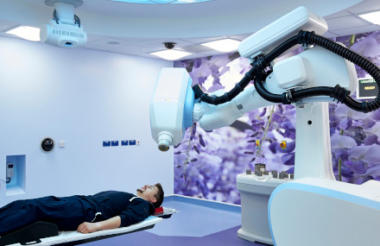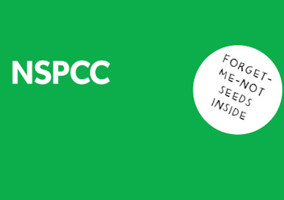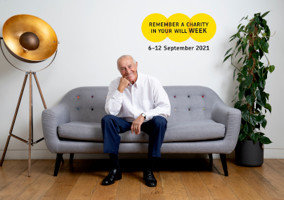For charity fundraisers, talking about gifts in wills can often be awkward. Who likes to talk about dying after all? Take that into the hospital charity setting and it can become even more sensitive.
Hospitals are supposed to be places where people get better, which means that there’s often a very deliberate focus not to talk about death. At the same time, legacies are becoming increasingly important for our income and there’s a real need to promote the concept and inspire people to remember us in their will. Public perception of the NHS and hospital charities’ needs for funds has transformed with the pandemic. But, how do we channel that tide of goodwill towards legacies, while getting the balance right?
In many ways this is brilliantly demonstrated by the good old ‘in memory’ plaques. It’s something many donors ask for, but it doesn’t always resonate well with patients or family members. How would you feel going into a treatment room or being treated on a piece of equipment with an ‘in memory of’ plaque taking pride of place? It’s not going to instil you with a lot of confidence!
Similarly, while a hospital waiting room isn’t the right place for a legacy leaflet, information on legacy giving has to be available for potential supporters – whether that is patients, families or anyone else for that matter. Leaving a gift in a will enables people to really make a difference and that’s what they want. Over the last 18 months of the pandemic, we’ve taken more enquiries about legacies, tributes and in memory giving than we usually do.
So, how can we build on this momentum and overcome the barriers for legacy promotion in a sensitive environment?
Make legacies accessible
People won’t leave a legacy unless they know they can, and how to find out more about it. So, make the information accessible, particularly when it comes to your website. Check that the information is easy to find and up to date, that it covers how people can leave a legacy, who they can contact to ask questions and what to do next. You may not be able to put a legacy leaflet out in the hospital, but make sure that you have one or an information pack to give to enquirers and to share whenever the topic comes up.
Celebrate good legacy news
Legacies may well be part of end-of-life planning, but the focal point isn’t death or dying. It’s about how people can influence the future of the causes they care about. While putting out a press release asking people for gifts might not be the way to go, sharing news and stories celebrating the impact of legacies is a very different, inspirational approach. If legacy income has been used to purchase a new piece of equipment or for a refurbishment, this can be a great opportunity to talk not only about the project, and what it will mean for patients and their families, but also how it was achieved. Share the news with local media, through your newsletters, website and social media.
Make use of national initiatives
Often the challenge is when to raise the topic of legacies, but national initiatives remove that barrier. It might seem insensitive all of a sudden to start putting out news items and social media posts about gifts in wills, but doing so during Remember a Charity Week, for example, suddenly makes it more acceptable. It gives us a hook and a reason for publicising legacies now. (The resources are a bonus too!)
Find a will-writing scheme or partner that works for you
There are so many will-writers and law firms out there that it can be difficult to know what is the best option or where to start. But there are organisations you can partner with who have done all this for you. Remember a Charity offers an online option and the opportunity for people to find a local solicitor or will writer. Similarly, Bequeathed offers a free Will for Good where people can make a Will online in conjunction with a local law firm.
Embrace the chance to talk legacies
There is something very humbling and special about chatting through why someone wants to leave a legacy, along with which areas of your work they might want to support. These conversations are so very special – often deeply empowering for legacy givers, who want to do something so significant, so meaningful.
A will is one of the most important documents someone will ever write in their lifetime. If they wish to support the charity in this way, then surely the least we can do is to be there to make the experience as easy and rewarding as possible.
Cathryn Worth is fundraising manager at University Hospitals Birmingham Charity
Related articles












